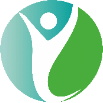Acronyms are everywhere and cover a variety of topics. You have acronyms like HOMES to help students remember the names of the Great Lakes or YOLO as an abbreviation of “you only live once.” Have you ever stopped to think about the acronyms that help you as a caregiver? Several acronyms assist you daily when talking to doctors or homecare professionals, and others can be instrumental in an emergency.

ADL
Activities of daily living are the tasks your parents do to stay healthy and function at home. ADLs include being able to feed oneself, getting showered and dressed, ambulation/mobility, and toileting.
DNR
A do not resuscitate order is needed to prevent paramedics and doctors from using equipment to bring your mom or dad back to life if their heart stops when there is no hope for a long, healthy life.
The key is that there must be sufficient life left. If your mom is in the final stage of Alzheimer’s and her heart stops, the medical team will not try to revive her. You must know her wishes in different scenarios, especially if you’ll be the one making decisions for her.
FAST
FAST is an acronym used to help with stroke prevention. It stands for Face, Arms, Speech, Take Action. If you notice the face drooping, arms refusing to stay up when lifted, or speech is slurred, your parent is likely having a stroke. You need to call 911 and get help.
FMLA
The Family and Medical Leave Act is one of the options family members have to take time off to care for a parent. If you qualify, FMLA protects your job for up to 12 weeks. You request FMLA, your employer gives you the unpaid time off, and you focus on taking care of your parents without fear of losing your job or benefits.
HIPAA
The Health Insurance Portability and Accountability Act requires healthcare organizations to keep patients’ data safe. This matters to family caregivers because they will not be allowed access to their parents’ medical information without permission. Your parents need to fill out a HIPAA form to enable doctors and nurses to talk to you.
IADL
The instrumental activities of daily living are more complex tasks people should be able to do for themselves. It includes these categories:
- Household Management: Paying bills, cleaning the home, bringing in and organizing the mail, doing the laundry, organizing items, and decluttering
- Medication Management: Taking prescription and non-prescription medications as advised, ordering refills when needed, and storing them properly
- Meals: Cooking meals, shopping for ingredients, knowing food safety rules, and putting away foods correctly
Socialization/Communication: Seeking out companionship, interacting with others, answering the phone, and scheduling appointments - Transportation: Driving to the store and medical offices, arranging transportation if one doesn’t drive, and booking flights and trains when needed
A family caregiver has a challenging role. Some days require you to act like a parent to your parents. If you feel frustrated, it’s time to take a break. Reach out to a home care agency to learn about respite care.
Respite care provides you with breaks, but you still need to advocate for your parents. When caring for your mom or dad, it’s essential to communicate their needs and goals. If they like to do something on their own for a few tries, make sure their home care aide knows.
If you or an aging loved-one are considering hiring Homecare in Palo Alto, CA, and the surrounding area, call the caring staff at Aviva In-Home Care.
Call today: (415) 795-2203
- What You Should Know About Caring For A Parent With Alzheimer’s - May 23, 2025
- How To Help Your Senior Parent Feel Their Best Every Day - May 14, 2025
- Preventing Falls in the Yard - May 6, 2025




